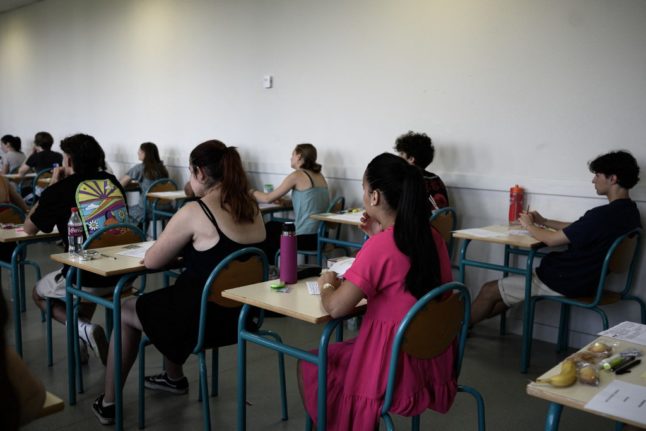On Tuesday March 14th, hundreds of students from various regions across the country will undertake a pilot test, which includes various models of what the future university entrance exams in Spain could look like.
The results will not be counted towards the final grades of the students, but they will be used to analyse responses and make the necessary corrections for 2024, when it is expected that the new exam will come into force.
The trial will be carried out in 50 schools and institutes in the Balearic Islands, Castilla-La Mancha, Extremadura, La Rioja, the Canary Islands, Navarra, Valencia, Asturias, Cantabria, Catalonia and Ceuta and Melilla.
The regions governed by Spain’s People’s Party (PP), such as Madrid, Castilla y León, Murcia, Andalusia and Galicia, however, have not wanted to participate. Aragón and the Basque Country have also refused, according to sources from the department led by the Minister for Education, Pilar Alegría.
The changes to the Spanish secondary school education system began in September 2022, when the government announced several changes such as encouraging critical thinking and reasoning over learning by rote, which has been popular in Spain in the past.
READ ALSO: How Spain is changing its ESO secondary education system
How will the new exams work?
The different pilot exams distributed across the country will all be different as the government intends to test various alternatives to see which one works the best or what aspects of each one can be extracted to make up the new, so-called Selectividad entrance exam.
The exams have been prepared by teachers and have also involved the “collaboration of associations of mathematicians, philosophers, and linguists”, Ministry of Education sources have revealed.
Since it will be first-year Baccalaureate (Bachillerato) students (ages 16-18) will be tested this way, it will include subjects that students have already taken in their first year and will continue into their second, such as Spanish language, literature, maths, foreign languages, philosophy, Latin, and artistic drawing. There will be no history of Spain, for example, since it is not taught in the first year of Baccalaureate.
There will also be personnel from the Ministry of Education at each of the 50 institutes where the students will be examined, and once completed, the results will be compiled and an interview process will begin to assess students’ impressions.
The analysis of the results is due to be published in May 2023. It is important to note that the tests will not affect this year’s university entrance exams, nor will they greatly influence the next school year.
When will the new exams be introduced?
The main objective of the Ministry of Education was to start with the new entrance exams as early as the 2023/2024 academic year, but it was finally decided to postpone the process for one year. This means that any changes will not be applied until 2024.
The four-year transitory phase for changing over to the educational model promoting critical thinking has also been extended until 2028.
From 2024 to 2027, there will be a test divided into several exercises to be carried out in 105 minutes: one on a subject such as mathematics, or Latin, for example, and another two on philosophy and the history of Spain.
The fourth exercise, which will make up 60 percent of the final grade, will assess the “academic maturity” of the student, who will have to analyse a dossier made up of images, infographics, texts, tables and graphs on the same topic.
This final fourth part of the test, however, will not be introduced with the new EBAU in 2024, so the changes are not so abrupt and are slowly introduced over the next few school years.
Details of this model will be released this summer so that teachers can prepare the necessary syllabuses to teach the Baccalaureate students who will take the new entrance exam next year.



 Please whitelist us to continue reading.
Please whitelist us to continue reading.
Member comments